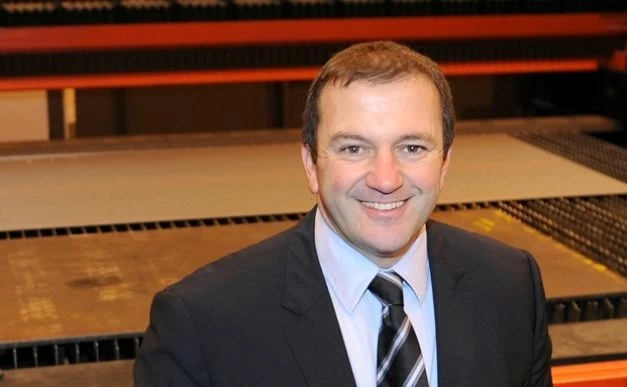
Partner Article
Machining firm banks on helping apprentices to save
A Manchester based engineering company has set up an ‘Apprenticeship Bank’ to help its young workers save money for future plans.
Ian Griffiths chief executive officer of Eaves Machining said: “Overall, we have two main objectives – to be the employer and supplier of choice in our sector. We want to attract more apprentices and were looking for ways to differentiate ourselves from other employers.”
The sub-contracting machining company saves £20 per week on behalf of each apprentice for the duration of their time with Eaves and then gives the youngster the money saved when they have finished their apprenticeship.
This new scheme comes as the company prepares for future growth.
While Eaves has invested heavily in new machines and is pushing its overseas sales, Mr Griffiths cautioned that “it’s still early days”.
“Less than 5% of our business is export, but we expect that to rise by quite a bit in the coming years. We’re always looking for people who have worked on machines of our scale and they’re often not out there, so we’re hoping to appeal to those for the future.”
The ‘bank’ starts the moment an apprentice joins the company, usually aged 17, and lasts until they reach 25. By this time, over £8000 plus interest will be available for them.
Eaves, which currently employs six apprentices, says it would like to increase that number to eight in the short term and eventually to have ten apprentices on its books.
This was posted in Bdaily's Members' News section by Simon Malia .








 Raising the bar to boost North East growth
Raising the bar to boost North East growth
 Navigating the messy middle of business growth
Navigating the messy middle of business growth
 We must make it easier to hire young people
We must make it easier to hire young people
 Why community-based care is key to NHS' future
Why community-based care is key to NHS' future
 Culture, confidence and creativity in the North East
Culture, confidence and creativity in the North East
 Putting in the groundwork to boost skills
Putting in the groundwork to boost skills
 £100,000 milestone drives forward STEM work
£100,000 milestone drives forward STEM work
 Restoring confidence for the economic road ahead
Restoring confidence for the economic road ahead
 Ready to scale? Buy-and-build offers opportunity
Ready to scale? Buy-and-build offers opportunity
 When will our regional economy grow?
When will our regional economy grow?
 Creating a thriving North East construction sector
Creating a thriving North East construction sector
 Why investors are still backing the North East
Why investors are still backing the North East